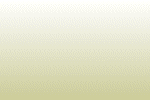|
What are you teaching your children
by
example ? “Your
children are not your children, they
are the sons and daughters of Life’s longing for itself. They
come through you
but not of you,
Kahil
Gibran-The Prophet All children come into this world with an enormous resource of unlimited potential, so how do they grow up to become anxious, sad, confused, overweight, addicts, physical, emotional and sexual abusers, and in general, adults that are unhappy with themselves, and the quality of their lives? Children are born innocent and good but know it themselves only by reflection and by the way they are treated. They begin to learn about themselves through the mirroring eyes of their parents and this is where they will see and recognise themselves for the very first time. Our parenting forms children’s core beliefs about themselves. These beliefs, along with their experiences of growing up within their family environment, will become the internal map that they will use to guide and shape every decision they will make. Decisions about who they are as a person, and their place in the world, and because these decisions are powerfully motivated by their own view of themselves, they will in turn only create destinies that they believe are possible and appropriate for them. As parents we are then required to ask ourselves the question, “What did we learn from our parents about life, and what are we now teaching our children by example? Are we teaching our children the life skills and mirroring for them qualities that providing for them an internal map of how to be the very best person you can be?” In
our families we learn about relationships, intimacy, communication,
money,
conflict resolution, work, sex, socialising, success, God, expressing
emotions,
what the rules are about being a man/ a woman, how to cope with
stressful
situations, self worth, self esteem, and what you must do in order to
feel
loved and accepted. That’s all behaviour actually is, you
learn to “be” a
certain way to “have “ what you want. A child may
learn to “be” good, smart,
rebellious, sick, a clown, and many other forms of behaviour, in order
to “have”
what they need and want, the parents love, attention, approval and
acceptance.
Unfortunately, what the child can also learn is that I am most loved
when I am
not being myself. Accumulating
scientific research shows that this is how we begin to be set up for
things
like addictions, eating disorders, mental illness, insecurities,
jealousy, the
need to be in control, and compulsive, co-dependent behaviours. As we
grow into
adults we continue to play out the same behaviours, that were once part
of how
we creatively adjusted to our past environments in order to survive and
receive
the love we wanted. These same behaviours though, may be interfering
with our
ability to effectively function, be happy, feel fulfilled, achieve our
dreams,
and tap into our potential. It’s important as parents to recognise and acknowledge within ourselves the behaviours, attitudes and expectations we have that may be effecting our ability to role model for our children qualities such as free expression of feelings, thoughts, affection, and our dreams, effective problem solving, relationships where both parents are personally empowered and able to meet their own and each others needs, model emotional honesty, individuality, respect and the capacity to laugh, play and have fun. We ourselves learnt from our own parents the rules of life by which we are now living, and are these the same rules that we want our own children to live by, and in turn, go on to teach their children. The future of our planet depends on our children’s conceptions of themselves, and that view of themselves, and their ability to be all that they can be, is shaped by us. |
Parenting

